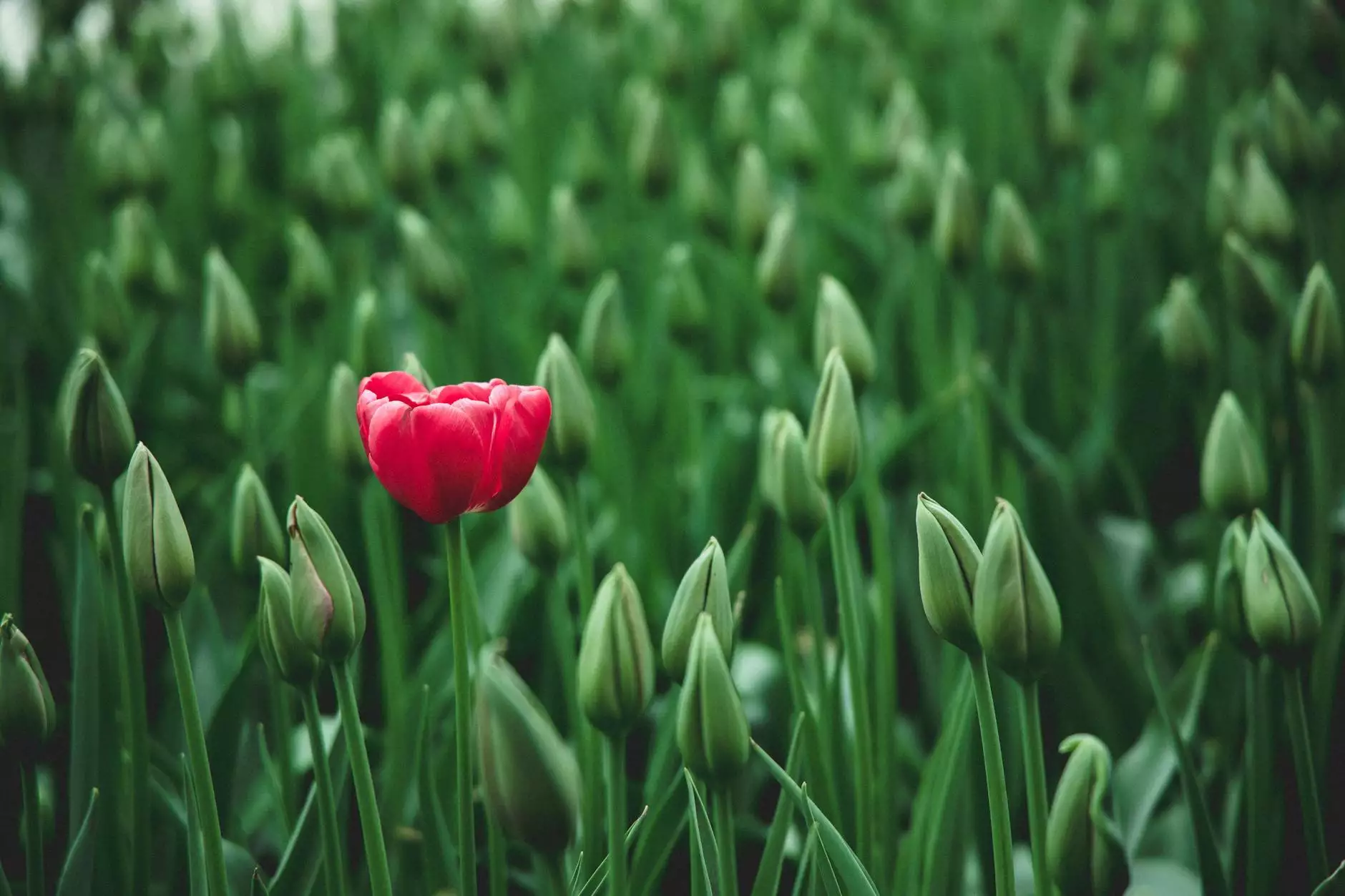Discover the Beauty and Business of the tulip: A Guide for Florists and Flower Enthusiasts

The tulip is undoubtedly one of the most iconic and captivating flowers in the botanical world, renowned for its stunning appearance and deep cultural history. For florists, botanical entrepreneurs, and flower lovers alike, understanding the immense potential that the tulip holds in both aesthetic appeal and business value is essential. This comprehensive guide explores the significance of tulip flowers, the dynamics of the tulip-related business sector, and how to harness this beautiful bloom’s power to boost floral enterprise success.
1. The Cultural and Historical Significance of the tulip
The tulip has a rich history that spans centuries, with origins tracing back to Central Asia, particularly the mountainous regions of modern-day Afghanistan and Persia. Its journey to becoming a symbol of beauty, luxury, and prosperity is intertwined with various societies and civilizations.
In the 16th and 17th centuries, the tulip gained unprecedented popularity in the Netherlands, leading to the famous «tulip mania»—an early speculative bubble that significantly impacted the Dutch economy. Today, the tulip remains a national symbol of the Netherlands, representing resilience, elegance, and a zest for life.
Understanding this cultural context is vital for florists and flower businesses aiming to leverage the tulip’s emotional and cultural resonance in their marketing and product offerings.
2. The Botanical Characteristics of the tulip
2.1. Botanical Description
The tulip belongs to the Liliaceae family, with botanical name Tulipa. These perennial herbaceous plants typically grow from bulbs, featuring cup-shaped flowers with a wide range of vibrant colors including reds, pinks, yellows, whites, purples, and bi-colored varieties.
Their simple yet elegant structure comprises six petal-like tepals and a sturdy stem that often bears multiple blooms, making them ideal for floral arrangements and bouquets.
2.2. Cultivation and Growing Conditions
- Soil: Well-drained, loamy soil enriched with organic matter.
- Sunlight: Full sun exposure for optimal growth.
- Watering: Moderate watering; avoid waterlogged conditions.
- Climate: Cool to temperate zones are ideal, with dormancy during winter months.
By understanding these details, florists and growers can optimize cultivation, ensuring a consistent supply of high-quality tulip flowers for their business requirements.
3. The Commercial tulip Industry: Market Insights and Opportunities
3.1. Market Trends in tulip Flowers
The floral industry has seen a continuous rise in demand for seasonal and specialty flowers, with tulips standing out as one of the most sought-after options. Their versatility makes them suitable for various occasions—from weddings and garden parties to corporate events and status symbol displays.
Innovative marketing strategies focusing on the tulip’s symbolism of rebirth, hope, and beauty have boosted consumer interest globally. The trend towards sustainable and locally-sourced flowers further enhances the market potential of cultivated tulip bulbs and fresh blooms.
3.2. Business Models for tulip Entrepreneurs
- Wholesale tulip Growers: Supplying florists and retailers with fresh tulip flowers.
- Specialty tulip Farms: Focusing on cultivation of rare and exotic varieties for niche markets.
- Florist tulip Arrangements: Offering bespoke bouquets featuring tulips for holidays like Easter, Mother’s Day, and spring festivals.
- Event-Driven Sales: Participating in flower festivals, exhibitions, and seasonal markets for brand visibility and sales growth.
4. How Florists Can Maximize tulip Flower Business Potential
4.1. Selection of High-Quality tulip Varieties
Invest in diverse tulip varieties that appeal to different customer preferences and seasonal trends. Popular choices include:
- Single Early: Bright, early bloomers ideal for spring sales.
- Double Early: Full-petaled blooms perfect for romantic bouquets.
- Parrot tulip: Exotic, ruffled petals that stand out in arrangements.
- Rembrandt tulip: Varieties with streaked petals for a vintage aesthetic.
4.2. Creating Engaging Floral Designs
Utilize the natural beauty and unique shapes of tulips to craft innovative floral arrangements. Combining tulips with greenery, seasonal flowers, and decorative elements can elevate their visual impact, attracting more customers.
4.3. Effective Marketing Strategies
Capitalize on the emotional appeal of tulip flowers by emphasizing their symbolism in your marketing campaigns. Use compelling visual storytelling through social media, website galleries, and promotional materials. Offer seasonal packages and subscription services to ensure consistent sales flow throughout the blooming season.
5. The Role of Sustainable and Ethical Practices in the tulip Business
Today's consumers increasingly value sustainability and ethical sourcing in their flower purchases. For florists and tulip growers, adopting eco-friendly practices such as organic cultivation, eco-conscious packaging, and supporting fair labor standards can serve as a competitive edge.
Implementing local cultivation reduces carbon footprint and fosters community engagement, simultaneously ensuring freshness and quality.
6. Future Outlook: The Bright Prospects for tulip Business in the Floral Industry
The tulip continues to enjoy unparalleled popularity, driven by seasonal demand, cultural festivals, and aesthetic appeal. Innovations in genetically diverse varieties, sustainable farming practices, and creative marketing will propel this flower’s status further.
Investing in quality cultivation, market differentiation, and storytelling around the tulip’s symbolic meanings will help florists and flower businesses build a resilient, profitable enterprise.
Businesses such as tulipfarm.co.uk have already recognized the potential of the tulip industry, offering exceptional products within the Florists and Flowers categories, ensuring customers receive the best quality tulip-based floral services.
7. Why Choose tulipfarm.co.uk for Your tulip Floral Needs?
As a leading specialist in tulip cultivation and floral arrangements, tulipfarm.co.uk combines expertise, quality, and sustainability. Their wide range of tulip varieties, coupled with personalized services for florists, ensures that your floral business remains at the cutting edge of the industry.
8. Final Thoughts: Unlocking the Full Potential of tulip Flowers
The tulip is more than just a beautiful flower; it is a symbol of hope, renewal, and elegance that continues to captivate humans across generations. For florists and flower industry entrepreneurs, understanding its cultural significance, botanical characteristics, and market opportunities can unlock a world of profitable possibilities.
By investing in high-quality cultivation, innovative floral design, and sustainable practices, you can position your tulip business for long-term success. Embrace the vibrant, diverse, and symbolic power of the tulip and watch your floral enterprise flourish.
For all your tulip needs and expert guidance, trust tulipfarm.co.uk – your partner in the blooming floral industry.









